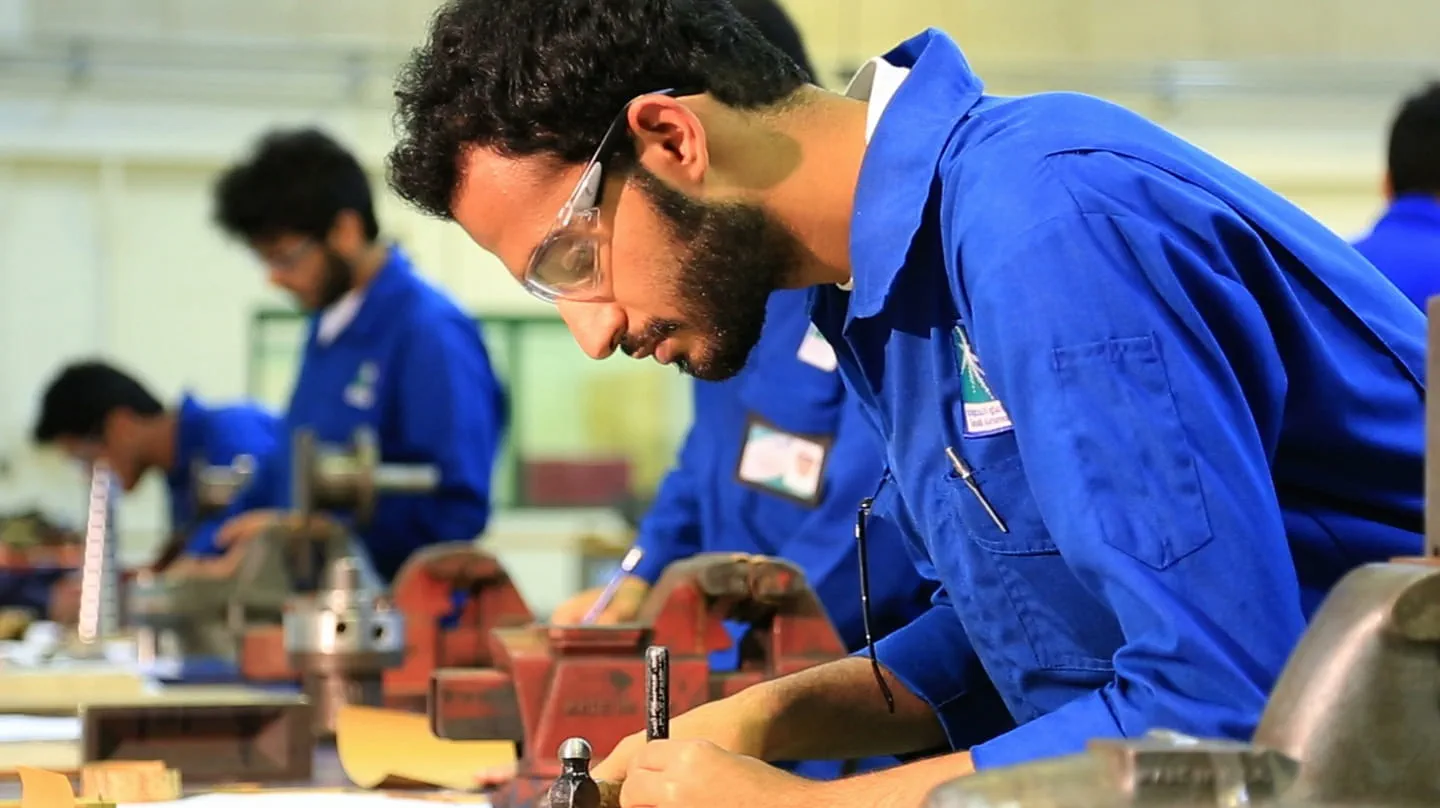The healthcare sector of Saudi Arabia accepts artificial intelligence (AI) technologies at a fast pace to transform healthcare service delivery. The healthcare updates develop diagnostic precision through improved methods that manage patients and streamline operations within the healthcare framework. The Kingdom uses artificial intelligence as its essential tool to achieve both economic transformation and sustainable healthcare delivery that responds to increasing population needs during its Vision 2030 development. This research looks at Saudi Arabian healthcare AI implementation through detailed diagnostic system operation and patient care management exploration while analyzing technological effects on medical infrastructure.

AI-Powered Diagnostic
In Saudi Arabia AI serves as a diagnostic tool which plays a critical role by advancing medical screening methods. Among the most remarkable advancements in Saudi Arabian healthcare is AI-based diagnostic solutions. Healthcare professionals apply AI tools to make disease identifications and diagnoses which begin earlier and achieve improved results compared to conventional diagnosis methods. These technological systems deliver their most effective results when being utilized for radiology and cardiology and oncology due to the critical need for fast accurate diagnosis in these fields.
Radiology and Imaging
AI diagnostic instruments have revolutionized medical imaging practice in Saudi Arabia's healthcare industry. In 2023 King Faisal Specialist Hospital and Research Centre of Riyadh introduced AI radiology solutions to handle medical image assessments from X-rays, CT scans, and MRIs and delivered outstanding outcomes. Machine learning programs from Aidoc and Zebra Medical Vision implement algorithms which find potential medical abnormalities in graphical images. AI technology surpasses human radiologist accuracy by detecting tumors together with fractures as well as medical problems in patient images.
The King Faisal Specialist Hospital displays lung cancer detection with AI as its most prominent example of AI technology. The AI system performs CT image analysis to detect lung nodules that represent possible cancer indicators. Early detection and treatment success rates increase substantially with this system because it demonstrates more than 90% accuracy. The AI-powered diagnostic system enhances both process speed and eliminates human mistakes to free medical professionals for handling intricate complicated cases.
AI in Cardiology
AI systems are advancing rapidly in medical procedures related to cardiology. Operational AI equipment in Saudi Arabia utilizes electrocardiogram examination to monitor heart rhythms while predicting cardiovascular disease onset. At King Saud Medical City located in Riyadh, one of Saudi Arabia's biggest medical centers, AI systems operate continuously to track heart conditions of patients. Deep learning algorithms in these systems enable them to both identify arrhythmias and detect abnormal heart rhythms as well as forecast possible cardiac events prior to their occurrence.
The AI system deployed at King Saud Medical City succeeds in detecting minor heart function modifications beyond human observation so healthcare staff gain ample intervention time to avert heart attacks and strokes. Doctors gain better treatment choices and deliver prompt healthcare interventions through AI-enabled detection of previous warning indications which helps stop more detrimental medical situations.
AI in Oncology
AI has established promising applications in oncology throughout Saudi Arabia where it assists with screening and treating breast cancer along with prostate cancer. The Saudi Ministry of Health formed a 2024 partnership with Microsoft to deploy AI solutions for hospitals across Saudi Arabian territories. The joint project undertakes two functions involving AI to examine clinical pictures together with genetic data which enables early cancer identification and individualized treatment program generation.
AI medical systems provide mammogram analysis for breast cancer screening which requires less biopsy procedures and results in speedier diagnostic outcomes. Through its advanced detecting abilities the AI system identifies small tumors thus increasing the number of early-stage cancer discoveries while lowering mortality records for late-stage diagnoses. The system undergoes testing at King Abdulaziz Medical City in Riyadh before its implementation in other medical facilities throughout Saudi Arabia.
AI-Driven Patient Management Systems
AI in Emergency Care: Triage Systems
The most significant use of artificial intelligence in healthcare exists to manage patients within emergency settings. The health institutions of Saudi Arabia started using AI-driven triage systems throughout different hospitals across the nation in 2024. Modern patient classification systems with machine learning capabilities process patient symptoms to determine care order based on illness severity which directs emergency staff to the most acute patients.
King Fahd Medical City in Riyadh implements an AI triage system which processes patient symptoms with medical history together with test results to determine their risk for serious health conditions such as heart attacks and strokes. The AI system directs care toward patients with most urgent medical needs thus enhancing treatment outcomes while shortening wait periods. Healthcare institutions across Saudi Arabia are increasing their use of this system throughout emergency departments and hospitals throughout the country.
AI for Patient Scheduling and Resource Optimization
Hospital operations receive essential support through AI systems because of its optimization capabilities. The implementation of AI technology has revolutionized the scheduling process which formerly required extensive human work. AI systems within Saudi Arabian hospitals use predictive modeling to determine upcoming patient numbers thus optimizing their staff and service delivery schedule. Prediction systems examine data from previous seasons and appointment history before they calculate incoming patient volumes and help hospitals adjust their workforce delivery.
Hospital leaders use AI to monitor emergency room flu season visit forecasts which helps staff hospitals efficiently for patient volume surges. The strategic management of staff numbers together with resources through AI leads to shorter wait times which advances patient contentment and leads to better operational efficiency.
AI Virtual Assistants for Patient Interaction
AI virtual assistants offer round-the-clock support to patients through their enhanced patient experience provision. Virtual assistants based on NLP algorithms serve Saudi Arabian hospitals to answer patient questions along with delivering medication alerts and scheduling appointments. Such AI helpers provide 24/7 availability to make essential medical details accessible for patients beyond human representative requirements.
Patients at the King Saud Medical City utilize AI-powered chatbots to plan medical appointments as well as request their prescriptions and access clinical guidance about post-operative care. The combination of labor reduction for hospital staff together with patient-controlled self-care enhances the effectiveness of autonomous care management.
AI and Personalized Medicine

The healthcare sector in Saudi Arabia benefits tremendously from AI because this technology advances the field of personalized medicine. Through AI algorithms scientists evaluate genetic information and health characteristics and life history data to design individualized treatment strategies for patients. The move towards individualized patient care remains critical because it fights against the rising numbers of diabetes alongside obesity and cardiovascular diseases.
Saudi Arabia utilizes AI technology to fight against diabetes which represents a significant health issue within its territory. The Saudi Ministry of Health delivers AI-based solutions for monitoring blood sugar levels while simultaneously performing dietary analysis and patient-specific recommendation generation. Through AI-driven methods patients gain superior control of their healthcare condition which produces better medical results and overall reduced healthcare expenses in future.
Medical experts utilize Artificial Intelligence for developing individualized therapy plans by examining cancer patients' genetic composition when treating them. AI systems examine genetic information to both detect mutations along with predicting suitable treatment options which maximizes patient outcomes. The King Faisal Specialist Hospital and Research Centre collaborated in implementing this individualized strategy which intends to expand across healthcare institutions.
Challenges and Ethical Considerations
AI presents great opportunities yet numerous obstacles alongside moral questions which need proper solutions. The protection of patient data stands as the main issue that needs attention. Medical practitioners need full access to patient data for AI-based care so it becomes essential to establish effective security measures that protect this sensitive information from unauthorized access. The government of Saudi Arabia has established the Personal Data Protection Law (PDPL) as well as other data privacy regulations to ensure patient information stays protected.
Operational management of AI systems proves challenging because Saudi Arabia lacks enough skilled professionals. The healthcare industry demands more AI experts who need to include data scientists together with machine learning engineers and healthcare workers who have AI working experience. Saudi Arabia invests in AI training plus global technology partnerships because the government wants local talent to play a leading role in national AI-based initiatives.

Conclusion
The healthcare sector of Saudi Arabia is undergoing a transformative change because AI implementation leads to better diagnostic results and enhanced patient treatment with customized care. AI capabilities will drive Saudi Arabia toward becoming the top regional leader in AI-based healthcare solutions. The Kingdom achieves an efficient accessible and effective healthcare system through their sustained dedication toward AI healthcare through partnerships and innovation and workforce development.
The achieved progress in AI-based healthcare reveals its ability to transform Saudi Arabian healthcare but existing challenges about skilled labor and data privacy issues still need attention. AI development will expand its fundamental position to enhance healthcare quality while establishing Saudi Arabia's medical system for serving its expanding population requirements. Vision 2030 drives Saudi Arabia to establish a position as the leading region for AI healthcare innovation while creating international medical technology advancements


















